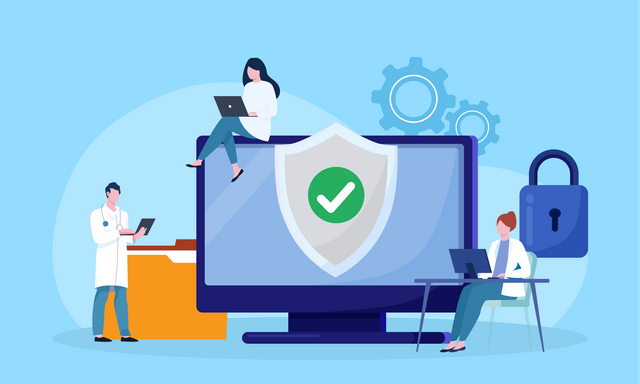Why Healthcare Providers Should Consider Data Security
The security and integrity of patient data become critical as more healthcare companies use AI for medical coding. Sustaining strong data security protocols is not only legally required in this quickly changing environment, but also essential for patient care and corporate confidence.
Healthcare AI Transformation
Revenue cycle management and medical coding are being revolutionized by AI. Conventional medical coding procedures require a lot of work, are prone to mistakes, and often cause payments to be delayed. These procedures are streamlined by AI-powered systems like XpertCoding, which automate coding jobs, guarantee correctness, and quicken billing cycles. Healthcare providers benefit from lower administrative costs and increased operational effectiveness because to medical coding automation.
But integrating AI also means having to deal with the problem of protecting a ton of private patient data. Healthcare providers must prioritize data security because to the potential for cyberattacks on AI systems, despite their immense capacity.
Important Data Security Issues
The security and privacy of patient data are critical when using AI. The rich data handled by the healthcare industry makes it a great target for fraudsters. Ransomware and Distributed Denial of Service (DDoS) assaults are two common risks that seriously jeopardize patient data's availability, confidentiality, and integrity.
DDoS attacks have the ability to impede healthcare services and postpone necessary medical treatment. Patient data may be encrypted by ransomware attacks, making it unreadable until a ransom is paid. These occurrences interrupt healthcare operations, erode patient confidence, and cost money and reputation.
Healthcare providers must have strong security measures in place and take a proactive approach to data protection in order to reduce these risks.
Observance and Guidelines
One of the most important aspects of data security in healthcare is following regulations. XpertCoding, an AI-powered medical coding system, meets ISO 27001, HIPAA, ISO 22301, and SOC2 data security requirements.
ISO 27001:
The criteria for an information security management system (ISMS) are outlined in this international standard. Healthcare providers may guarantee the confidentiality, integrity, and availability of sensitive patient information by adhering to ISO 27001 standards.
HIPAA:
In the US, the Health Insurance Portability and Accountability Act (HIPAA) establishes the norm for safeguarding private patient information. Healthcare institutions that comply with HIPAA are guaranteed to put in place the appropriate security measures to secure patient information.
ISO 22301:
The business continuity management standard is its main emphasis. Healthcare providers may make sure they have measures in place to continue operating amid disruptive situations by conforming to ISO 22301.
SOC2:
A reporting structure for service organizations is called Service Organization Control 2 (SOC2). A healthcare provider's ability to comply with SOC2 indicates that they have robust controls in place to protect patient information.
These guidelines help healthcare providers satisfy regulatory obligations and create patient confidence by securing data.
Conclusion
Healthcare providers must prioritize data security as AI-powered solutions like XpertCoding become essential to Medical Coding Automation and revenue cycle management. Protecting patient data requires putting strong security measures into place, following legal requirements, and making use of cutting-edge security technology. So, healthcare professionals can protect critical data, improving patient care and confidence in a digital environment.
FAQs
How does AI impact medical coding and revenue cycles?
Improves accuracy, speeds up billing processes.
What measures mitigate cybersecurity threats in healthcare?
End-to-end encryption, real-time threat detection, security audits.
Why are DDoS attacks a concern for healthcare providers?
They can disrupt patient care and services.
How do ransomware attacks affect healthcare operations?
Encrypt patient data, leading to operational disruptions.
Why should healthcare providers prioritize security audits?
Identify vulnerabilities and ensure effective security measures.
